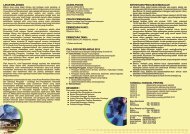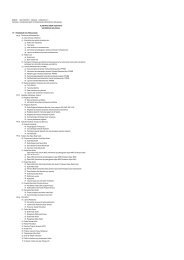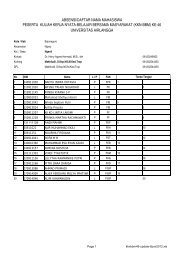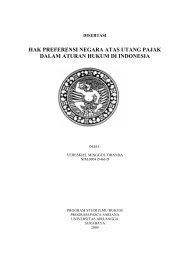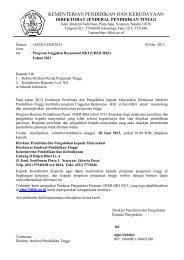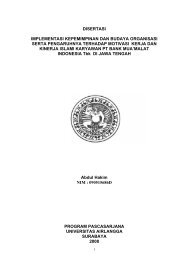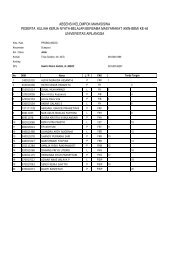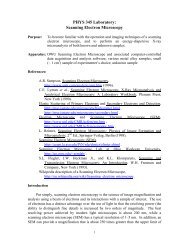that reason that the notion of ressentiment requires a more complex account than the reference tothe internalization of instinct leading to anger and resentment. 122.3 I submit that ressentiment is a state of mind arising when the mind becomes conscious of itself12I discuss ressentiment towards oneself and its importance for any account ofressentiment at more length in Risse (forthcoming), a companion piece to this essay. However,the claim needs to be supported at least briefly. In support of the claim that there is indeed arecognizable discussion of ressentiment towards oneself , consider section 6 in Ecce Homo’schapter Why I am so Wise. Discussing ressentiment, Nietzsche writes: “One cannot get rid ofanything, one cannot get over anything, one cannot repel anything – everything hurts. Men andthings obtrude too closely; experiences strike one too deeply; memory becomes a festeringwound.” And further down in the same paragraph: “Nothing burns one up faster than the affectsof ressentiment. Anger, pathological vulnerability, impotent lust for revenge, thirst for revenge,poison-mixing in any sense – no reaction could be more disadvantageous for the exhausted.” Itseems that anger, pathological vulnerability and the other sentiments mentioned are reactions ofa person who does not “get rid of anything” or “get over anything.” Here, for instance,ressentiment is not directed towards others, but tied to the inability to come to terms with one’sown past. Individuals who turned out well (die Wohlgeratenen), whom we shall encounter laterin this section, are characterized in particular by their ability to come to terms with their past: Hebelieves neither in ‘misfortune’ nor in ‘guilt’: “he [the person who turned out well] comes toterms with himself, with others; he knows how to forget -- he is strong enough; hence everythingmust turn out for his best” (EH, Wise, 2). The connection between ressentiment and the inabilityto come to terms with one’s past is present already in the Second Untimely Mediation, althoughNietzsche there, of course, does not talk about “ressentiment.” Consider this passage in UM II, 1:A human being who would like to feel historically through and through would resemble the one who wouldbe forced to deprive himself of sleep, or resemble the animal that should live on ruminating and everrepeated ruminating. So: it is possible to live almost without memory, even to live happily, as the animaldemonstrates; yet it is entirely impossible to live without forgetting. Or, to explain myself even simplerabout my topic: there is a degree of sleeplessness, of ruminating, of historical sense, at which the living isharmed, and ultimately perishes, be it a human being or a people or a culture.The character described here bears strong similarities to the character we just encountered inEcce Homo. While the subject of ressentiment towards oneself requires more attention than wecan give it, note that emphasis on this type of ressentiment, although not common in the currentAnglo-American literature on Nietzsche, is far from idiosyncratic; for it has been a major pillarof Heidegger’s reading of Nietzsche; cf. Heidegger (1954) and (1977), and for discussion,Sugarman (1980) and Koecke (1994). Koecke (1994), p 62f distinguishes between ressentimentin the broader sense and ressentiment in the narrower sense; ressentiment in the narrower senseis like the German word Groll and is directed against others, and in the broader sense it isdirected also against onself.10
under circumstances in which deep-rooted, ingrained anger and resentment are already present inthe mind. Anger and resentment (or, again, some evolutionarily earlier versions thereof) arisebecause the evolution of the mind occurs in response to violent oppression of aggressive instincts.Nietzsche’s image of the animal that finds itself incarcerated and bites itself raw on the bars of itscage is helpful here (cf. GM II, 16): where previously instincts could be discharged against otheranimals, anger and resentment now grow. Contrary to Aristotle’s classic account in the Rhetoric(1378a34), this kind of anger is not directed against any specific individual, any more than theaggression of the earlier instincts was directed against anybody in particular. Once the mindbecomes conscious of itself, something new happens: anger and resentment resulting from theoppression of instincts are now directed not only against mental representations of others, butagainst mental representations of the mind itself. For the mind to become conscious of itself meansfor it to become able to refer to and reflect upon itself, perhaps by forming representations of itselfor beliefs, emotions, or other entities ”inside” or constitutive of it, perhaps in other, nonrepresentationalways. But once the mind is capable of making reference to itself, anger andresentment find new targets inside the mind: they become directed against the mind itself. Putdifferently, when the mind expands the scope of entities it can refer to, in this case to entities insideitself or part of it, anger and resentment expand their scopes as well. While any representation in themind provides internal targets for anger and resentment replacing the former external targets ofaggressive instincts now beyond reach, the mind’s becoming self-conscious increases the range ofsuch internal targets by including representations of the mind itself, including memories of itsdevelopment. Since the mind is from the beginning on an angry and resentful mind, anger and11




